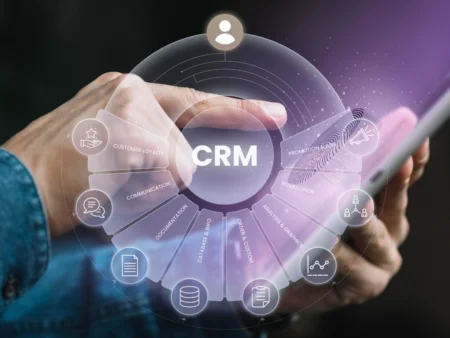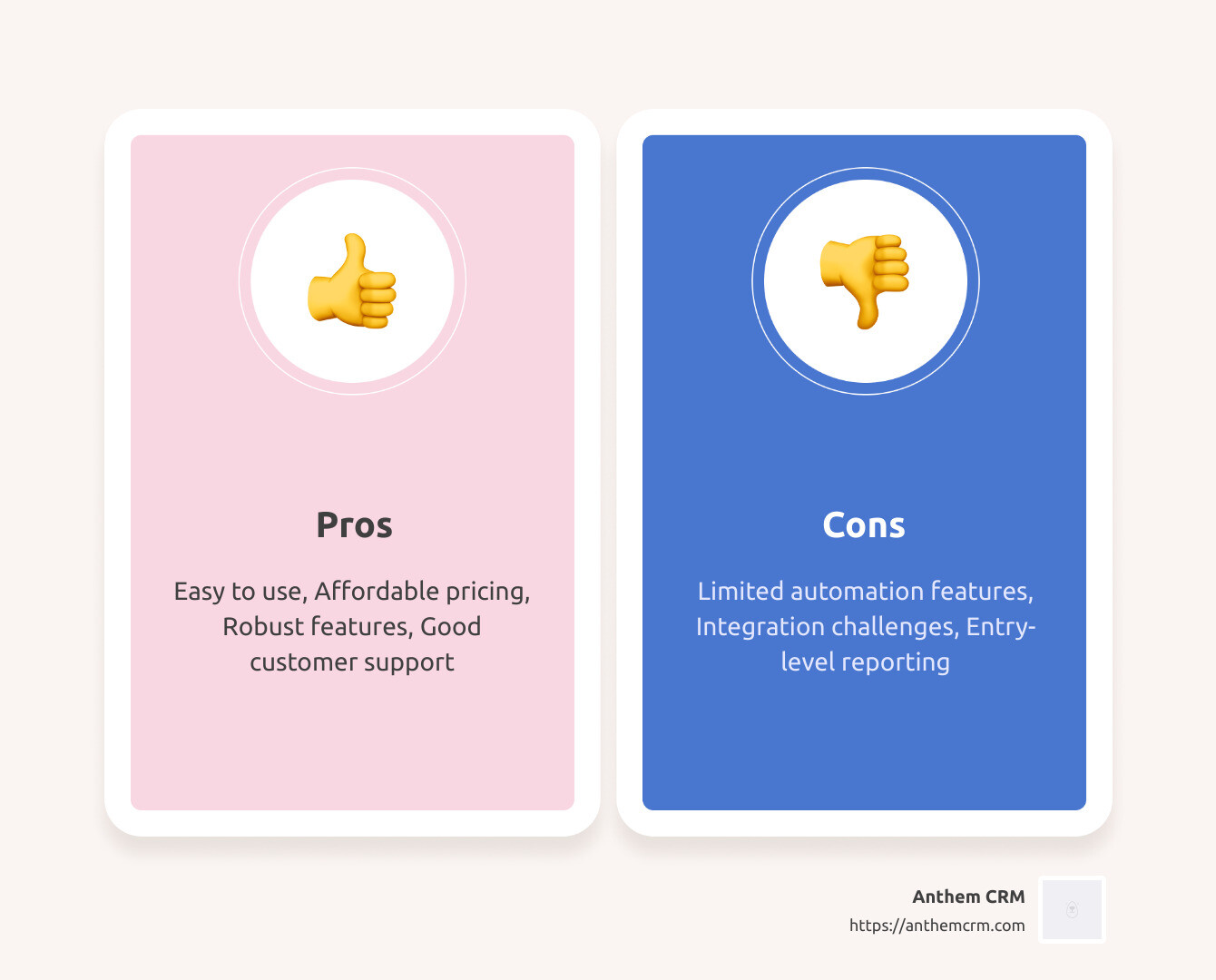CRM for Small Business in 2025: Your Ultimate Guide to Growth and Customer Delight

CRM for Small Business in 2025: Your Ultimate Guide to Growth and Customer Delight
The business landscape is constantly evolving. What worked yesterday might not cut it tomorrow. As we hurtle towards 2025, small businesses face a unique set of challenges and opportunities. One of the most critical tools in navigating this landscape is a robust Customer Relationship Management (CRM) system. This comprehensive guide will delve into the world of CRM for small businesses in 2025, exploring its importance, the latest trends, and how you can leverage it to achieve sustainable growth and, most importantly, keep your customers happy.
Why CRM is Non-Negotiable for Small Businesses in 2025
In the past, CRM systems were often seen as a luxury, mainly for large corporations. However, times have changed. In 2025, a CRM system is no longer optional; it’s a necessity for any small business serious about thriving. Here’s why:
- Customer-Centricity is King: Customers have more choices than ever. They expect personalized experiences, quick responses, and consistent service. A CRM system empowers you to understand your customers, anticipate their needs, and provide tailored interactions that build loyalty.
- Data is the New Oil: Information is power. A CRM system centralizes all your customer data – interactions, preferences, purchase history, etc. – giving you actionable insights to make informed decisions.
- Efficiency and Productivity: Small businesses often operate with limited resources. CRM automates repetitive tasks, streamlines workflows, and frees up your team to focus on more strategic initiatives, like closing deals and building relationships.
- Scalability: As your business grows, your CRM system should grow with it. A well-chosen CRM can scale to accommodate increasing customer volume and evolving business needs.
- Competitive Advantage: Businesses that leverage CRM effectively will have a significant edge over those that don’t. CRM helps you deliver superior customer experiences, leading to increased sales, customer retention, and positive word-of-mouth referrals.
Key Trends in CRM for Small Business in 2025
The CRM landscape is constantly evolving, driven by technological advancements and changing customer expectations. Here are some key trends to watch out for in 2025:
1. AI-Powered CRM
Artificial intelligence (AI) is no longer a futuristic concept; it’s transforming the way businesses operate. In 2025, AI will be deeply integrated into CRM systems, offering a range of benefits:
- Predictive Analytics: AI can analyze customer data to predict future behavior, such as which customers are likely to churn or which products they might be interested in.
- Automated Chatbots: AI-powered chatbots will handle routine customer inquiries, freeing up your team to address more complex issues.
- Personalized Recommendations: AI can analyze customer preferences to provide personalized product recommendations, leading to increased sales.
- Sales Automation: AI can automate tasks such as lead scoring, opportunity management, and email marketing, boosting sales efficiency.
2. Mobile CRM
In 2025, the ability to access and manage your CRM data on the go will be essential. Mobile CRM solutions will become even more sophisticated, offering features like:
- Real-time Data Access: Access customer information, update records, and track sales progress from your smartphone or tablet, no matter where you are.
- Geolocation Features: Integrate with mapping services to identify nearby customers or opportunities.
- Offline Access: Work on customer data even when you don’t have an internet connection.
3. Social CRM
Social media continues to play a vital role in customer engagement. In 2025, CRM systems will increasingly integrate with social media platforms, enabling you to:
- Monitor Social Media Conversations: Track mentions of your brand, identify customer sentiment, and respond to inquiries or complaints.
- Engage with Customers Directly: Interact with customers on social media platforms, providing support, answering questions, and building relationships.
- Social Media Lead Generation: Capture leads from social media and integrate them directly into your CRM system.
4. CRM and Business Intelligence (BI) Integration
Data is more valuable when it’s analyzed. In 2025, CRM systems will seamlessly integrate with BI tools, allowing you to:
- Gain Deeper Insights: Analyze customer data alongside other business data, such as sales figures and marketing campaign performance.
- Create Custom Reports and Dashboards: Visualize your data in a way that’s easy to understand and act upon.
- Make Data-Driven Decisions: Use data to inform your business strategies and optimize your performance.
5. Focus on Customer Experience (CX)
Customer experience will be a key differentiator in 2025. CRM systems will be designed to enhance every stage of the customer journey:
- Personalized Interactions: Tailor your interactions based on customer preferences and behavior.
- Proactive Support: Anticipate customer needs and provide proactive support before they even ask.
- Seamless Omnichannel Experience: Provide a consistent experience across all touchpoints, including email, phone, chat, and social media.
Choosing the Right CRM for Your Small Business in 2025
Choosing the right CRM system can be daunting, but it’s a crucial decision. Here’s a step-by-step guide to help you make the right choice:
1. Define Your Needs and Goals
Before you start evaluating CRM systems, take the time to understand your business needs and goals. Ask yourself:
- What are your biggest pain points?
- What do you want to achieve with a CRM system? (e.g., increase sales, improve customer retention, streamline workflows)
- What features are essential for your business?
- How many users will need access to the system?
- What is your budget?
Creating a detailed list of your requirements will help you narrow down your options and choose a system that’s a good fit.
2. Research CRM Systems
Once you know your needs, start researching different CRM systems. Consider the following factors:
- Features: Does the system offer the features you need, such as contact management, sales automation, marketing automation, and reporting?
- Ease of Use: Is the system user-friendly and easy to learn?
- Integration: Does the system integrate with your existing tools and platforms, such as your email marketing software, accounting software, and website?
- Scalability: Can the system scale to accommodate your future growth?
- Pricing: Does the pricing model fit your budget?
- Customer Support: Does the vendor offer good customer support?
- Reviews and Ratings: Read reviews and ratings from other small businesses to get an idea of the system’s strengths and weaknesses.
Some popular CRM systems for small businesses include:
- HubSpot CRM: A free, powerful CRM with a wide range of features. Excellent for businesses focused on inbound marketing.
- Zoho CRM: A comprehensive and customizable CRM with a variety of pricing plans.
- Salesforce Sales Cloud: A leading CRM platform that offers a wide range of features and integrations, though it can be more complex and expensive than other options.
- Pipedrive: A sales-focused CRM designed for small businesses.
- Freshsales: A sales CRM with built-in phone, email, and chat.
3. Consider a Free CRM
If you’re just starting out or have a limited budget, consider a free CRM system. While free options may have limitations, they can be a great way to get started and learn the basics of CRM. HubSpot CRM is a good example of a powerful free CRM option. It offers essential features like contact management, deal tracking, and task management.
4. Get a Demo and Try a Free Trial
Once you’ve narrowed down your options, request a demo or sign up for a free trial. This will allow you to see the system in action and get a feel for its user interface. Take the time to explore the features and functionalities and see how they align with your business needs.
5. Plan for Implementation and Training
Implementing a CRM system requires careful planning. Consider the following:
- Data Migration: Plan how you will migrate your existing customer data into the new system.
- Customization: Determine how you will customize the system to meet your specific needs.
- Training: Train your team on how to use the system effectively.
- Support: Ensure you have access to ongoing support from the vendor.
Proper implementation and training are essential for ensuring the success of your CRM system.
6. Integrate with Your Existing Tools
A CRM system is most effective when it integrates seamlessly with your existing tools. Make sure the CRM you choose integrates with the platforms you already use, such as your email marketing software (e.g., Mailchimp, Constant Contact), your website platform (e.g., WordPress, Shopify), and your accounting software (e.g., QuickBooks, Xero). This integration will streamline your workflows and provide a holistic view of your customer data.
7. Focus on Adoption
The best CRM system in the world is useless if your team doesn’t use it. Focus on driving user adoption by:
- Providing adequate training: Ensure your team understands how to use the system and its benefits.
- Highlighting the benefits: Show your team how the CRM system will make their jobs easier and more efficient.
- Leading by example: Encourage managers to use the system and demonstrate its value.
- Providing ongoing support: Offer ongoing support and answer any questions your team may have.
Successful CRM implementation requires a culture of adoption within your organization.
Maximizing the Value of Your CRM in 2025
Once you’ve implemented your CRM system, the work doesn’t stop there. To maximize its value, you need to continuously optimize and refine your approach. Here’s how:
1. Regularly Review and Update Your Data
Your CRM data is only as good as the information it contains. Regularly review your data, clean up any inaccuracies, and update customer information to ensure it’s accurate and up-to-date. This includes verifying contact information, updating preferences, and tracking interactions.
2. Leverage Automation
CRM systems offer a wide range of automation features. Utilize these features to streamline your workflows, save time, and improve efficiency. Automate tasks such as lead nurturing, email marketing, and follow-up reminders.
3. Analyze Your Data and Track Key Metrics
Use your CRM system’s reporting and analytics features to track key metrics, such as sales performance, customer acquisition cost, customer retention rate, and customer lifetime value. Analyze your data to identify trends, measure the effectiveness of your strategies, and make data-driven decisions.
4. Personalize Your Interactions
Use the data in your CRM system to personalize your interactions with customers. Tailor your communications, product recommendations, and support based on their individual needs and preferences. This will improve customer engagement and build stronger relationships.
5. Continuously Improve Your Processes
CRM is an ongoing process of improvement. Regularly review your CRM processes, identify areas for improvement, and make adjustments as needed. Solicit feedback from your team and customers to identify areas where you can enhance your CRM strategy.
6. Stay Updated on the Latest CRM Trends
The CRM landscape is constantly evolving. Stay informed about the latest trends and technologies, such as AI, mobile CRM, and social CRM. This will help you to leverage the latest innovations to improve your customer relationships and gain a competitive advantage.
The Future of CRM for Small Businesses
Looking beyond 2025, the future of CRM for small businesses is bright. We can expect to see:
- Even More AI Integration: AI will become even more sophisticated, enabling businesses to automate more tasks, personalize interactions, and gain deeper insights into customer behavior.
- Greater Focus on Customer Experience: Customer experience will become the ultimate differentiator, with CRM systems playing a central role in delivering exceptional experiences at every touchpoint.
- Increased Integration with Emerging Technologies: CRM systems will integrate with emerging technologies such as virtual reality (VR), augmented reality (AR), and the Internet of Things (IoT) to create even more immersive and personalized customer experiences.
- More Affordable and Accessible Solutions: CRM solutions will become more affordable and accessible, making them available to even the smallest businesses.
- Emphasis on Data Privacy and Security: With increasing concerns about data privacy, CRM systems will prioritize data security and offer robust privacy features.
The evolution of CRM is a testament to the ever-changing dynamics of the business world. By embracing CRM, small businesses can unlock immense value in building lasting customer relationships, driving business growth, and achieving sustainable success.
Conclusion: Embrace CRM for a Successful 2025 and Beyond
In conclusion, CRM is not just a software; it’s a strategic imperative for small businesses in 2025. By understanding the latest trends, choosing the right system, and implementing it effectively, you can transform your customer relationships, boost sales, and achieve sustainable growth. Embrace the power of CRM, and position your small business for success in 2025 and beyond. Don’t just survive; thrive.




